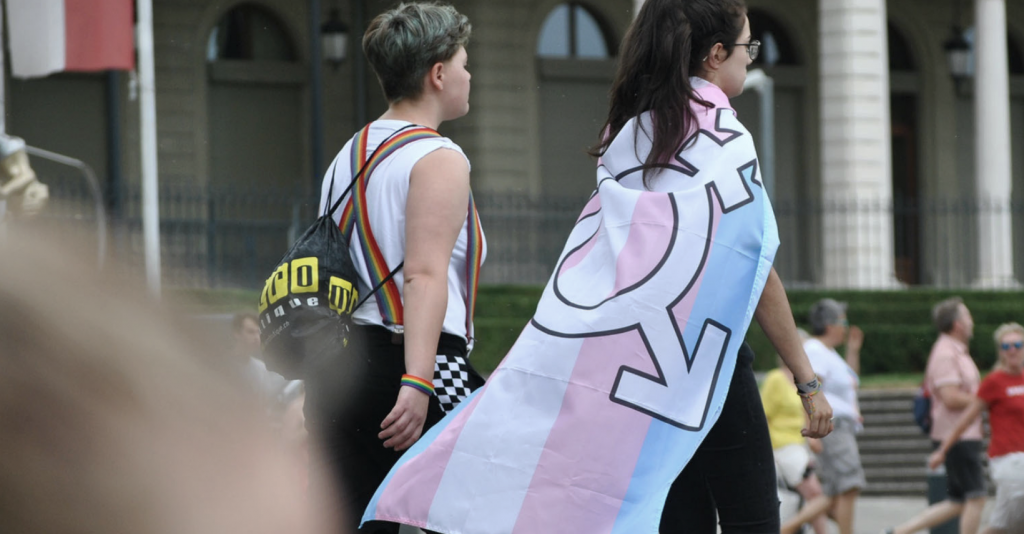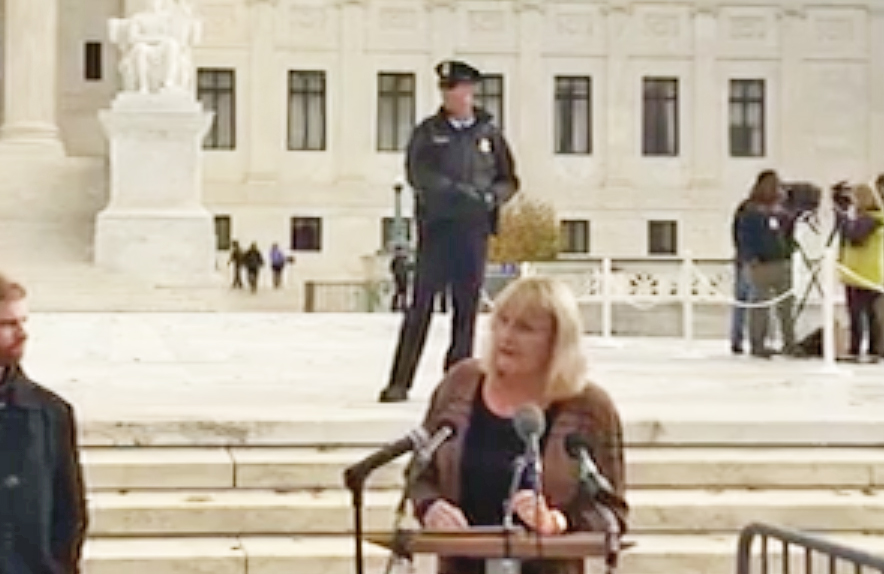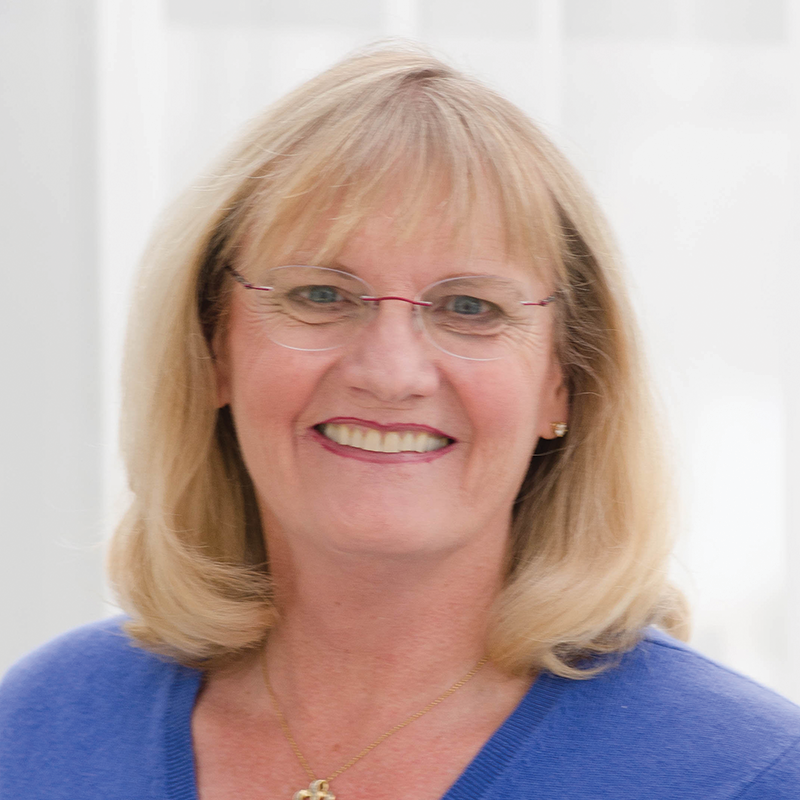During this year’s Transgender Day of Visibility, it is important to acknowledge what is happening in various states around our country. Legislative attacks against transgender people — and especially against our youth — is at an all-time high. These threats are real, harmful, and need to be countered at every turn. But it is also important to reflect upon the actual visibility and progress that transgender people and their allies have achieved over the past several decades.
As a witness to history, I believe we will overcome these attacks because we are in the right and, most importantly, because we’ve come out in the tens of thousands and tasted freedom and equality. You simply can’t put that genie back in the bottle. One of my favorite quotes seems particularly relevant right now.
“When I despair, I remember that all through history the ways of truth and love have always won. There have been tyrants, and murderers, and for a time they can seem invincible, but in the end they always fall. Think of it — always.”
Mahatma Gandhi
Trans people are experiencing a range of emotions in response to these attacks on our lives. It’s a scary time for some, and I understand and empathize. However, I am not scared. I’ve been in this battle for recognition and basic decency for more than 30 years and have seen where we’ve been.
What I’ve experienced
Although I have not had as hard a time as many who have come out, I have lost three jobs as a result of my gender identity, been rejected by life partners, and very nearly lost parental rights to my children. That is what people expected to happen. Such repercussions were the norm, not the exception. The law didn’t protect us. No courts ruled in our favor. And no elected official — Democrat or Republican — stood up for us. All of this has changed.
While I’m not scared now, fear has been part of my experience as a trans woman. I was out as transgender when Brandon Teena was brutally murdered and when Tyra Hunter was left to bleed to death while paramedics stood over her and laughed. I’ve been afraid to use a public restroom — and been told innumerable times that I was in the wrong one. I have been denied medical care and feared not having to access it.
I can remember being laughed at by a policeman after he pulled me over for a burnt-out taillight. “Do I call you sir or ma’am?” he chortled. It could have been so much worse. I was lucky. I have been mis-gendered, called names, and told I will burn in hell more times than I care to remember. I’ve even had screeds and condemnations sent to my private home address.
Lobbying for trans inclusion
In 1995, I went to DC to lobby for transgender inclusion in that year’s version of the Employment Non-Discrimination Act. I ran into one of my senators, Connie Mack of Florida, in the tunnels under the Capitol and told him why I was in town. When he heard me say “transgender,” he had to ask what that meant. When I explained, he physically recoiled and his aide stepped in between us, as if to protect the Senator from a threat.
I remember when we didn’t have the Internet and had few ways of connecting with one another and met in secret klatches. We were pariahs, even in the queer movement. We were dragged out as the punchline in jokes and scapegoated as the reason the gay community couldn’t get any respect or achieve its own goals of progress. We have been portrayed as child predators lurking outside public restrooms and used as a wedge to defeat protections for the LGBTQ+ community. (Story continues below photo.)

We’ve come a long way
And yet I cannot begin to list all the strides we have made over the years, for ourselves and for trans youth. An example, from not too long ago when Barack Obama was President, was when I stood in the East Room of the White House and watched and heard him talk about expanding rights for transgender people. Our current President, Joe Biden, has called the struggle for transgender rights as “the civil rights issue of our time.” I have spoken to many elected officials and power brokers who now see us as an integral and inseparable part of the LGBTQ+ community, deserving of equal recognition, respect, and protection.
So, believe me when I tell you that we’ve come a long way.
Perhaps surprisingly, it is not the progress we’ve made that keeps me from feeling fear today. Rather, it is my understanding of WHY and HOW we have made that progress. We’ve made all this progress because of the bravery of thousands of transgender people who refused to live in the shadows any longer. From the queens of Stonewall to courtrooms in Nebraska, and classrooms all across America, trans people have stood up to be counted.
Those who came before
I was a witness when we became a movement, when brave trans men and trans women began to live their lives openly and proudly; when Riki Wilchens founded Transexual Menace and, later, GenderPAC; when Tony Barreto-Neto (along with my friend Michelle and I) founded Transgender Officers Protect and Serve; when Vanessa Edwards Foster founded the National Transgender Advocacy Coalition; when Mara Keisling founded the National Center for Transgender Equality; when we protested the lack of police attention to the murders of transgender women of color (which is still happening at a horrifying rate). I was around when Monica Helms designed the transgender flag; when Jenny Boylan found her voice; when Gwen Smith started the Transgender Day of Remembrance; when Rachel Crandall started the Transgender Day of Visibility; when Autumn Sandeen chained herself to the White House fence in protest of Don’t Ask, Don’t Tell; when Amanda Simpson was appointed to the Obama Administration; and when Rachel Levine became the first openly transgender person to be Senate confirmed to a President’s administration.
I was around when thousands of people like me began to teach, most often by the example of our lives, but also often in classrooms or courtrooms across the country. This includes people like Diego Miguel Sanchez, of my generation, who became the first openly transgender senior staffer on Capitol Hill and Lynn Conway, a renowned scientist and transgender activist who came out as trans when I was in grade school and has done so much to tell our stories. It is not possible for me to list even the contributions of just my own friends, of my generation, to this movement. But these contributions to justice also include the lives and work of countless young people who have taken up the baton. People like Sarah McBride, Brynn Tannehill, Jazz Jennings, Masen Davis, Elliot Page and so very many others. I have many hundreds of accomplished fabulous friends who are transgender. No one can erase their accomplishments or their mark on society.
I was around when trail-blazing lawyers won the first cases on behalf of courageous transgender clients — people like Phyllis Frye, Spencer Bergstedt, Jennifer Levi, Shannon Minter, Kylar Broadus, and so, so many others. I watched as trial courts began to admit actual medical testimony validating the reality of our identities and lives. I was there when Michael Kantaras opened up his life for the whole world to examine and watched as the trial court dived deeply into what it means to be transgender. I know that there now exists an impressive body of legal analysis and precedent to support our existence, our humanity and our civil rights. No administrative action or state statute can erase that body of law.
Moments of pride
Although I lost three jobs due to my gender identity, I also was among a group of lawyers and advocates who fought for workplace protections for transgender individuals. And I helped Family Equality to submit an Amicus Brief to the Supreme Court when it heard the case of a transgender worker from Michigan who had been terminated due to her gender identity. I joined hundreds of others on the steps of the Court the day of oral arguments and spoke to the crowd about the need for job protections. Aimee Stephens won her case and, as a consequence, job protections for gay and transgender people now exist in every state, as part of Title VII of the 1964 Civil Rights Act.

I have been witness to the rise of allies in our struggle to gain respect and recognition. Our many allies both in and around the movement — including not only national and local advocates, but also friends and family and co-workers and community members who know us and love us — give us added strength and the heart to persevere
I’m not afraid…but I am angry
And so, for me, I am not afraid because nothing that these hateful state legislatures do can ever erase who we are as individuals and as a collective. No one can turn back the clock on who we are in this movement. We will never go back to living in the shadows, to accepting anything other than our full place in the American story of growing equality and acceptance. We know who we are. Our loved ones know who we are. The legal community knows who we are. The medical community knows who we are. These state legislators (outliers of public opinion), who would see us marginalized, disgraced, harmed, and even erased may, for a time, appear to win. But I’ve seen where we’ve come from, and I’ve glimpsed the future of our movement. The conservative zealots who want to try to deny our existence will never long prevail.
I am not afraid. But I am angry. I am angry that a group of people is trying to use their political advantage to harm us, and especially our trans youth. We all know something about turning anger into constructive action. I will do what I can to keep fighting (I was a boxer in the Navy and I don’t know how to quit). Do what you can, too, even if all that means is to VOTE for the candidates who repudiate these legislators and the harm they are doing, and to make sure that everyone who cares about you VOTES. If ever anyone wanted proof that elections have consequences, we have it now. We will certainly encounter setbacks, but we will get through it, and we will keep moving forward.
No matter what, #WeWontBeErased.

Denise Brogan-Kator
Chief Policy Officer Emeritus and former Interim CEO
Denise Brogan-Kator is Chief Policy Officer Emeritus and former Interim CEO of Family Equality from where she retired in 2021. She is a transgender woman and has been engaged in advocacy for the LGBTQ+ community for over 30 years. She was the first openly transgender person to matriculate at the University of Michigan Law School in 2004. She is a qualified submariner, having served in the US Navy from 1972-1976.
